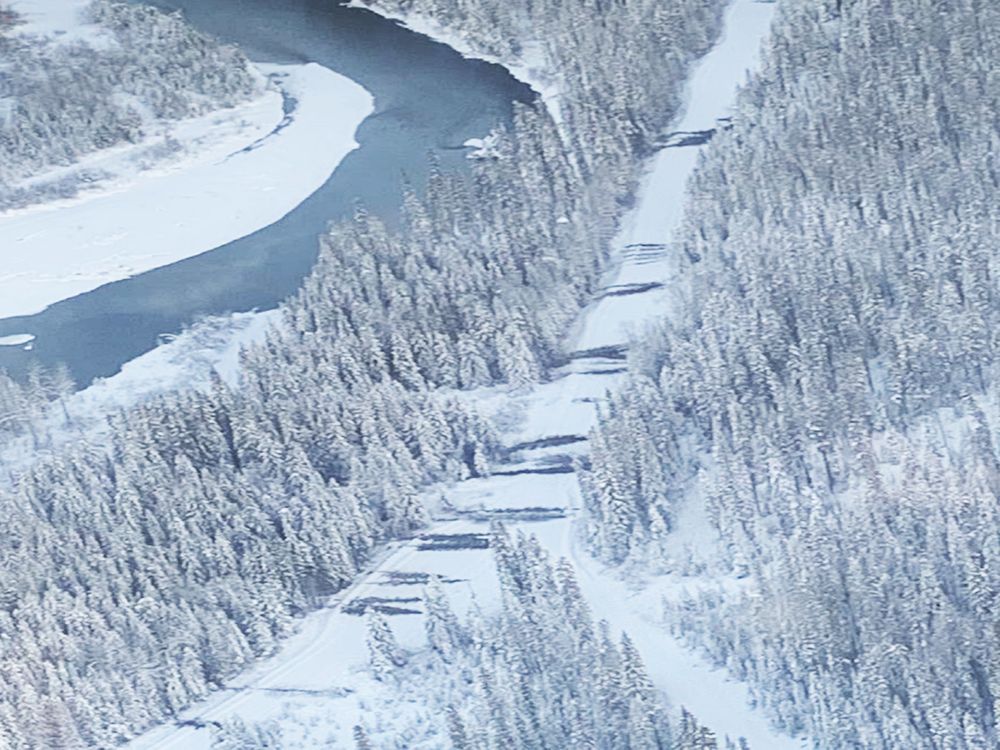RCMP will use 'least amount of force necessary' to enforce Coastal GasLink injunction

Credit to Author: Nick Eagland| Date: Wed, 05 Feb 2020 23:52:16 +0000
The B.C. RCMP laid out guidelines Wednesday ahead of its planned enforcement of an injunction of the Coastal GasLink pipeline construction site near Smithers.
RCMP assistant commissioner Eric Stubbs said the team of Mounties charged with carrying out the enforcement action have been instructed to use the least amount of force necessary to safely arrest protesters.
“We encourage all the protesters to abide by the injunction and leave the area, and they will not be arrested,” said Stubbs.
If there are arrests to be made, Stubbs says there are peaceful options that will require a minimal use of force, such as a voluntary peaceful arrests with no force being used and with no handcuffs.
“Those who want to be arrested and will not move, we will carry them away with very little force,” he said.
Coastal GasLink is building a 670 km pipeline from Dawson Creek to the LNG Canada export terminal near Kitimat. It is a project of TC Energy based in Calgary.
The company has signed agreements to build the pipeline with elected First Nations groups along the pipeline line but not with the traditional governing bodies of the Wet’suwet’en.
Earlier Wednesday, the B.C. government and First Nations hereditary chiefs announced that they had failed to reach an agreement on a peaceful resolution over the enforcement of an injunction.
Wet’suwet’en hereditary chiefs proposed seven days of discussions to de-escalate the dispute over the construction of the Coastal GasLink pipeline through the First Nation’s traditional territory near Houston.
Chief Woos, who also goes by Frank Alec, said in a statement that two days of talks concluded without progress and he expected enforcement of an injunction in the disputed area to be “imminent.”
Fourteen people were arrested last year when RCMP enforced an injunction that allowed pre-construction across Wet’suwet’en territory of the $6.6-billion natural gas pipeline, a key part of the provincially-approved $40-billion LNG Canada development.
Alec said hereditary chiefs remain committed to the engagement process and will continue discussions with the B.C. government, something Minister of Indigenous Relations and Reconciliation Scott Fraser confirmed.
Fraser said in a statement that even though a successful resolution was not found, everyone “came together in good faith to try to find a way forward” and the province remains open to further dialogue.
“We hope that the paramount need for safety stays the top priority for all parties,” Fraser said.
The B.C. Supreme Court granted Coastal GasLink an expanded injunction on Dec. 31 and the Wet’suwet’en hereditary chiefs responded by issuing the company an eviction notice in early January, arguing the company was violating traditional Wet’suwet’en laws.
There has been increasing tension since then, with RCMP saying traps “likely to cause bodily harm” had been found along a forest service road leading to the pipeline construction area.
A RCMP checkpoint limits access to the region although hereditary chiefs maintain they hold sole title to the unceded lands and do not support the pipeline.
When the talks were announced Thursday, RCMP said they would not take action to enforce the injunction by removing obstructions on the forest service road for seven days.
MORE TO COME
With files from Scott Brown and The Canadian Press